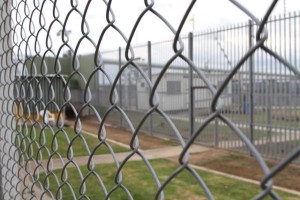Alternatives to immigration detention bring benefits – study
Alternatives to keeping asylum seekers locked up in detention are cheaper, support health and wellbeing, respect and fulfil human rights and strengthen successful case resolution, new research has found.
A study by Swinburne University’s Institute for Social Research also found alternatives to detention strengthened individual’s participation in case resolution processes, improved voluntary and independent departure rates and helped stabilise vulnerable individuals in transit.
The study, titled ‘There are alternatives: a handbook for preventing unnecessary immigration detention’, also found alternatives to locking up asylum seekers also helped avoid wrongful detention and reduced overcrowding and long-term detention.
The study’s lead author Dr Robyn Sampson said ‘alternatives’ were any law, policy or practice by which persons are not detained because of their migration status.
She said successful alternatives included keeping individuals engaged in immigration procedures while living in the community.
“This means that the location of the individual is not of primary concern. Instead the focus is on: screening individual cases and providing case management, legal advice and other mechanisms that support the individual to work towards case resolution,” Dr Sampson said.
“It also means ensuring basic needs can be met and applying conditions or limited restrictions only where necessary,” she said.
The report said that alternatives did not apply only to vulnerable individuals such as children or refugees, do not refer only to accommodation models, do not necessarily require the application of conditions such as bail/reporting and do not refer to alternative forms of detention.
“Further, when we take an international perspective and compare existing migration policy and practice across different contexts, we find most countries do not use detention as the
first option in the majority of cases and a number of countries rarely resort to detention, if at all,” the report said.
The research identified benefits in restricting the application of detention and prioritising community-based management options. The report said alternatives were up to 80 per cent cheaper than detention.
Alternatives increased independent departures, compared to deportations, and avoided litigation and compensation claims resulting from wrongful detention or harmful impacts, the report said.
Alternatives were more humane and better placed to uphold the rights of asylum seekers, refugees, stateless persons, irregular migrants and other migrants.
“They can avoid the harms of detention, reduce exposure to overcrowding and long-term detention and enable greater access to programs that support health and welfare,” the report said.
“Effective management in the community is also more likely to uphold fundamental civil, political, economic, social and cultural rights, thereby contributing to improved individual wellbeing and self-sufficiency,” it said.
Asylum seekers, refugees and migrants would be better able to contribute to society once residency was secured, or better equipped for facing the challenges of departure from the country, the report said.
“Alternatives can achieve high compliance rates, achieving up to 95 per cent appearance rates and up to 69 per cent independent departure rates for refused cases. Alternatives, particularly those incorporating case management and legal advice, also assist in achieving efficient and sustainable outcomes by building confidence in the immigration process and reducing unmeritorious appeals,” the report said.
“This can improve final immigration outcomes, be that integration for individuals granted status or departure for refused cases.”
The report said successful alternatives relied on a range of strategies to keep individuals engaged in immigration procedures while living in the community.
These included: using screening and assessment to tailor management and placement
decisions; providing holistic case management focused on case resolution; focusing on early engagement; ensuring individuals are well informed and trust they have been through a fair and timely process; ensuring fundamental rights are respected and basic needs are met; exploring all options to remain in the country legally and all avenues for voluntary or independent departure; and, ensuring any conditions imposed are not overly onerous.
The research found asylum seekers, refugees and migrants rarely absconded while awaiting the outcome of a visa application, status determination or other immigration process, if in their intended destination.
It found they were better able to comply with requirements if they could meet their basic needs while in the community.
It also found that they were more likely to accept and comply with a negative decision on their visa application, status determination or other immigration process if they felt they had been through a fair and efficient process and been kept informed.
Dr Sampson said detention was used in Australia in symbolic way as a deterrent but was only ineffective at reducing irregular migration to desired levels, but also weakens other migration management outcomes such as case resolution, departure for refused cases and integration for approved cases.
“Given these weaknesses, governments would be better placed prioritizing alternatives to detention. And deterrence is not legitimate grounds for detaining someone,” she said.
The report was produced for the International Detention Coalition (IDC), a global network, of over 300 civil society organisations and individuals in more than 70 countries that advocate for research and provide direct services to refugees, asylum-seekers and migrants affected by immigration detention.
Coalition members are supported by the IDC Secretariat office, located in Melbourne, Australia, and regional staff based in Berlin, Germany, London, United Kingdom, Geneva, Switzerland, Mexico City, Mexico and Kuala Lumpur, Malaysia.
Laurie Nowell
AMES Australia Senior Journalist













